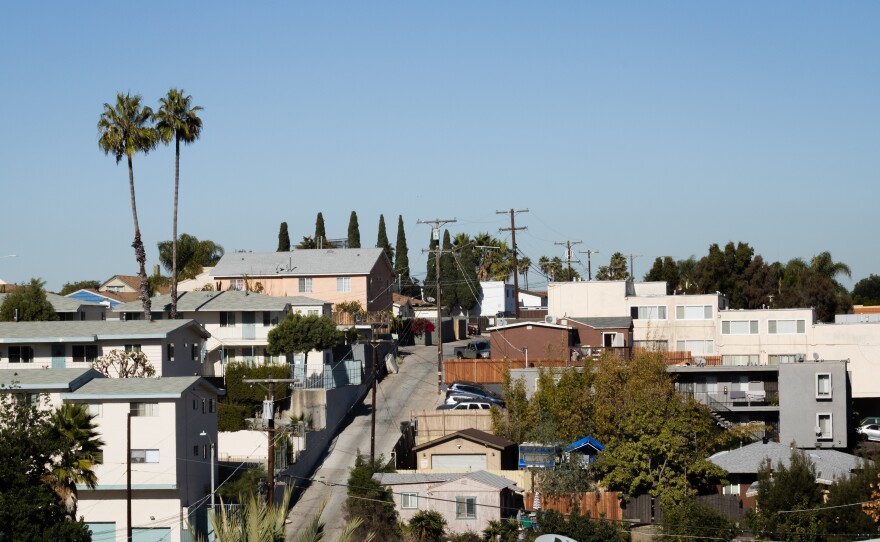The California Air Resources Board (CARB) has awarded the City Heights Community Development Corporation (CDC) $3.3 million to develop enhanced bike and pedestrian infrastructure in the neighborhood, it was announced Friday.
The work is intended to connect the under-construction Cuatro affordable housing complex to the nearby City Heights Transit Plaza and The Boulevard Transit Plaza. The grant funding will also support community outreach.
"This grant funding is exactly the kind of investment that uplifts our communities and helps build a better future for generations to come," said San Diego County Board of Supervisors Chairwoman Nora Vargas, who is also chair of San Diego Association of Governments. "By expanding equitable mobility choices and enhancing air quality for everyone, we're cultivating a healthier, more sustainable future for City Heights and for the San Diego region."
City Heights CDC is one of seven Sustainable Transportation Equity Project awardees in California, intended to "uplift and support sustainable mobility options in communities that have been disinvested," according to a statement from CARB.
The latest grant is part of City Heights CDC's ongoing plan to "advance community infrastructure and increase transportation options via sustainable redevelopment and anti-displacement policies," according to the organization.
"This $3.3 million grant will be used to enhance and amplify approved SANDAG-led capital improvement projects, bolstering transportation options and sustainability in City Heights," Alexis Villanueva, executive director of City Heights CDC, said in a statement. "Working with our co-applicant for the grant, SANDAG, we are proud we can bring efficient, clean and sustainable mobility options to City Heights. We are thrilled to receive this grant, which offers another testament to our original mission.
According to Villanueva, City Heights CDC was founded in 1981 as a response to Caltrans using eminent domain to raze more than nine blocks of City Heights to expand I-15.
CARB awarded a total of $33 million in grants to support projects that increase access to zero-emission transportation and diversify mobility options for schools and communities that service low-income areas.






